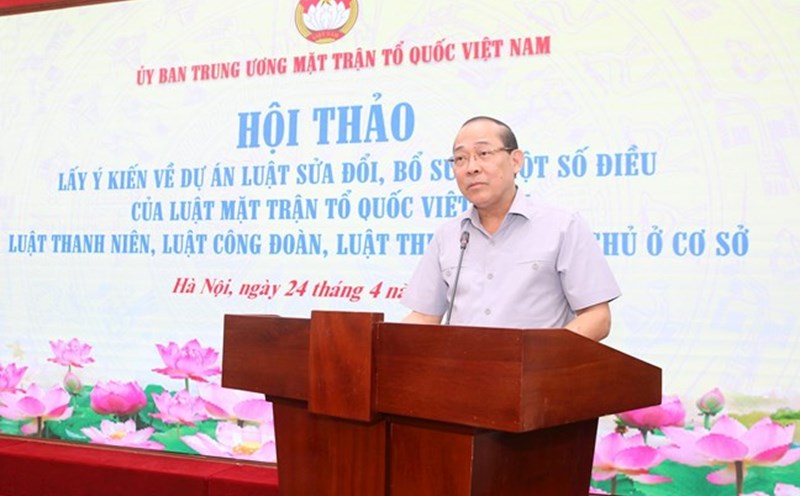On January 7, continuing the 41st Session, the National Assembly Standing Committee gave opinions on the National Assembly's thematic supervision outline on: "Implementation of policies and laws on environmental protection since the Law on Environmental Protection 2020 took effect".
The purpose of supervision is to review and evaluate the institutionalization of the Party's policies, the improvement of laws on environmental protection; the implementation of the Party's policies and the State's laws on environmental protection.
On that basis, propose tasks and solutions to promote the achieved results and overcome shortcomings and limitations in environmental protection.
The subjects of supervision include the Government; ministries in various fields; People's Committees of 63 provinces and centrally-run cities; and relevant agencies and organizations.
The monitoring team will focus on the promulgation and improvement of policies and laws on environmental protection; the organization and implementation of policies and laws on environmental protection. In particular, it will focus on assessing the allocation and use of resources for environmental protection; pollution control activities including pollution source control and environmental quality management, etc.
Along with that, focus on monitoring waste management; inspection, auditing, monitoring of compliance with environmental protection laws and handling of violations, fighting against environmental crimes...
Regarding the progress of monitoring activities, the Monitoring Team will develop a detailed Monitoring Plan and reporting outlines; work with the Government, ministries, branches, relevant agencies and organizations, organize 4 local monitoring working groups, organize workshops, seminars, etc.
In particular, from the end of June to before July 31, the Monitoring Team plans to organize 4 direct monitoring working groups in 15 localities (cities: Hanoi, Ho Chi Minh, Da Nang; Can Tho, Hai Phong; provinces: Binh Duong, Long An, Tra Vinh, Thai Nguyen, Quang Ninh, Bac Ninh, Thanh Hoa, Quang Ngai, Binh Thuan, Lam Dong).
Speaking at the meeting, Chairman of the Culture and Education Committee Nguyen Dac Vinh suggested a comprehensive assessment of the air pollution problem in Hanoi to find the cause.
This person suggested that the National Assembly's Supervisory Delegation review the sources of industrial emissions, large industrial zones around Hanoi, and large manufacturing facilities causing pollution.
Regarding the issue of construction dust, Mr. Nguyen Dac Vinh said that urban development will naturally generate dust due to construction, but it should be controlled. In addition, there is pollution caused by burning waste and agricultural materials.
Vice Chairman of the National Assembly Nguyen Khac Dinh noted that monitoring activities need to have specific results and strong policy recommendations to create changes in environmental protection issues.
Giving his opinion at the meeting, National Assembly Chairman Tran Thanh Man suggested that the Supervisory Delegation must set a goal of thoroughly handling environmental hotspots in localities.
The National Assembly Chairman noted that the Supervisory Delegation should point out specific addresses such as: Which units and localities have limitations in environmental protection; the responsibility of each agency at the Central level, the National Assembly, the Government, ministries, branches, and localities in implementing policies and laws on environmental protection.
Citing the experience of neighboring countries such as China, Deputy Minister of Natural Resources and Environment Le Cong Thanh hopes that through this monitoring, stronger measures will be taken, including amending laws and Government Decrees as well as drastic actions by localities.











